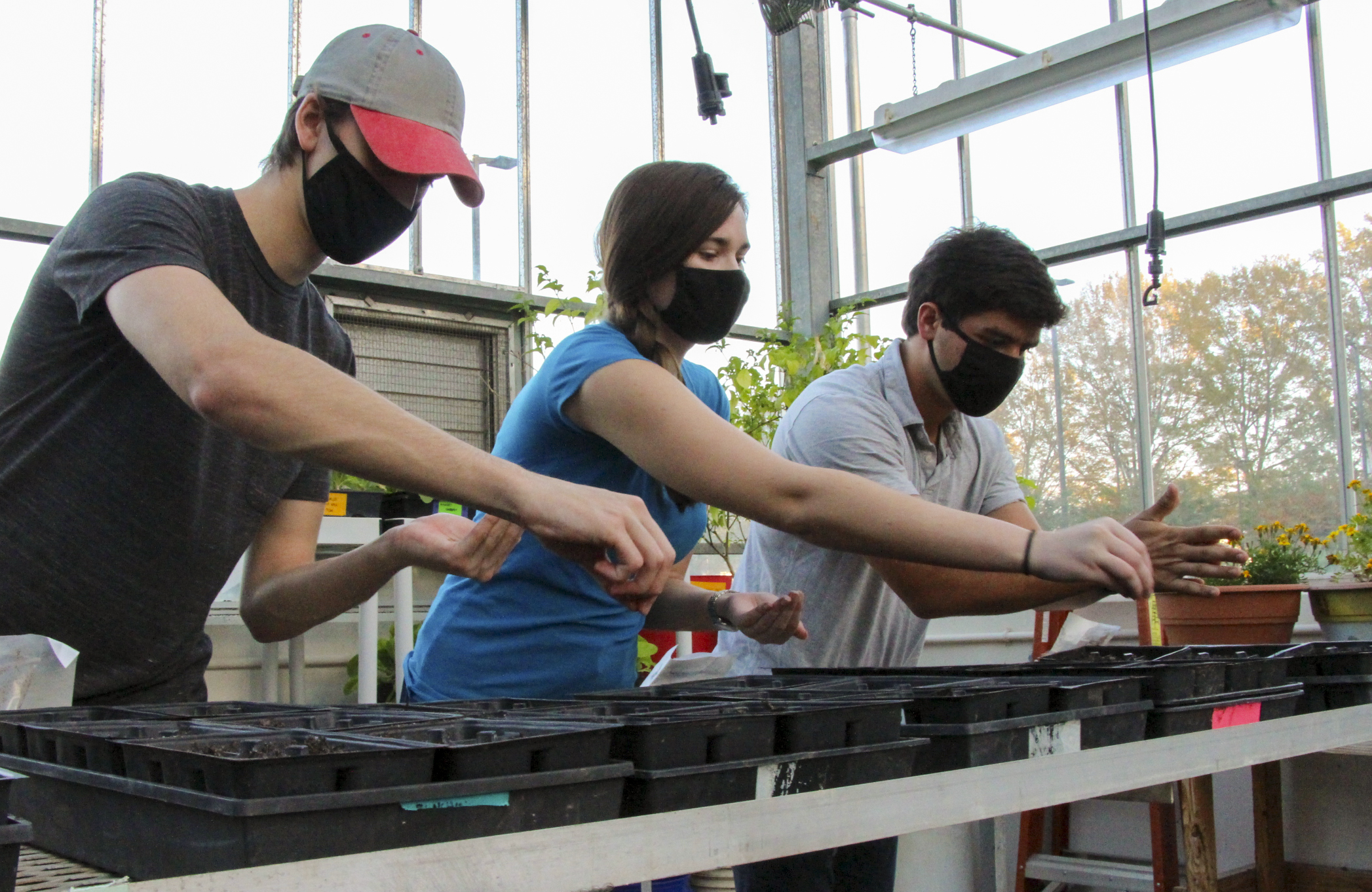The design and deployment of a constructed floating wetlands module will use student designs and plant life to monitor and improve the safety of stormwater runoff.
Excess nutrients in runoff pose serious threats to the environment, harming wildlife and damaging ecosystems, and to humans by polluting drinking water and contributing to health conditions.
Senior engineering majors are addressing these problems by designing, building and deploying a floating constructed wetlands module that will use vegetation to absorb excess chemical elements often found in fertilizers — like ammonium nitrate and phosphorous — and monitor water quality through various sensors. The module will be deployed in a retention pond on Elon’s campus this spring.
The scope and goals excite students. Algal blooms and bacterial growth encouraged by excess nitrogen and phosphorous in water contribute to fish kills and other ecological damage, as well as harmful health conditions in humans.

“Removing those elements from the water will improve people’s lives,” said Matthew Del Valle ’21, “and we’re not using chemicals. We’re using plants that use those chemical elements to grow. We’re removing harmful substances without adding anything but more plant life and vegetation. It’s an all-around cool project.”
The floating wetlands project is an important step for students — posing a series of challenging problems requiring critical skills to solve — and an advancement of the engineering program’s ongoing work around water research, said Associate Professor of Engineering Scott Wolter. The project addresses access to clean water, one of the National Academy of Engineering’s 14 Grand Challenges engineers must solve to improve life in the 21st century. Elon’s four-year engineering program is designed to address the Grand Challenges in curricular projects each academic year with an emphasis on the liberal arts, collaboration and communication.
A donation to the project by a member of the Engineering Advisory Board allowed for the purchase of commercial equipment that will be instrumental to future study of water quality and environmental issues. This fall, the program began the search for a faculty member who will bring environmental engineering expertise to the program. The university plans to include a water research lab in one of two new Innovation Quad buildings that will extend scientific and cross-disciplinary studies on campus. The university plans to break ground on the Innovation Quad, including Founders Hall, in 2021.

“I think we’re all excited about this project and the future of the program,” Wolter said. “This is a great way to launch our effort in this area, and we intend to continue this type of research for many years.”
Wolter is teaching the capstone project course with additional advising by Professor of Biology and Environmental Studies Brant Touchette and Assistant Professor of Engineering Jonathan Su. The multi-disciplinary approach marries biology and ecology with engineering.
The 10 seniors spent this fall designing electrochemical, optical and gas-phase combinatorial sensors that will transmit water quality data remotely. In layman’s terms, those sensors will measure the levels of chemical elements in the water, carbon dioxide and methane around the pond, and the turbidity of the retained runoff.
The preconstructed 8-foot-by-6-foot module arrived at McMichael Science Center in October. Working with Touchette, students began cultivating native plants that thrive on excess nutrients and will be planted in the module.

After the module is installed, students will compare readings from their sensor designs with those from more expensive, commercially manufactured sensors also installed on the module.
The Town of Elon’s engineers were involved in planning for the modules and had to approve the locations of three potential retention basins Elon students will study. Wolter said the town remains interested in the project and its outcomes.
Elimination of pollutants in groundwater and runoff into reservoirs and water sources is a major — and expensive — concern for municipalities. Runoff reservoirs in developments are already engineered to contain and mitigate chemicals. Students’ design solutions have the potential to reduce the cost of mitigation efforts and benefit residents and local governments.

“It shows how dedicated Elon is to hands-on, experiential learning,” said Eduardo Gonzalez ’21. “That’s why I wanted to come to Elon, because I knew I would be able to get a great engineering education with these kinds of experiences.”
The senior capstone project is the culmination of the undergraduate engineering experience. Students research, design and develop prototypes and deliverables around topics related to the NAE’s Grand Challenges. The engineering program is developing a network of industry partners to collaborate with in designing real-world solutions.



